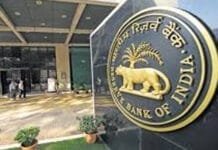India’s foreign exchange reserves have increased by $66 billion in 2024, reaching $689.235 billion. The Reserve Bank of India reports stable currency performance and robust economic management.
According to the latest data released by the RBI, India’s foreign currency assets (FCA) are now at the level of $ 604.144 billion. This is the largest part of the foreign exchange reserves. Along with this, the value of gold reserves is currently $ 61.988 billion. India’s foreign exchange reserves have been increasing continuously for the last few months. So far this year, the Indian foreign exchange reserves have increased by $ 66 billion and now it has reached the level of $ 689.235 billion.
Indian rupee one of the stable currencies of Asia
A decade ago, the Indian rupee was among the unstable currencies of Asia. But now, it has become one of the most stable currencies. This change is a testament to India’s growing economic strength and the effective management of the Reserve Bank of India.
This foreign exchange reserve plays an important role in protecting the country’s economy from global economic crises. According to the latest data released by the Reserve Bank of India (RBI), India’s foreign currency assets (FCA) are now at the level of $ 604.144 billion. This is the largest part of the foreign exchange reserves. Along with this, the value of gold reserves is currently $ 61.988 billion.
There was a reduction of $ 71 billion two years ago
According to estimates, India’s foreign exchange reserves are now sufficient to cover the estimated import cost of about a year. In the calendar year 2023, India had increased its foreign exchange reserves by about $ 58 billion. In contrast, in 2022, India’s foreign exchange reserves had decreased by a total of $ 71 billion.
RBI controls market volatility
Foreign exchange reserves are also called forex reserves. These are assets held by the central bank or monetary authority of every country. These are usually kept in reserve currencies, such as US dollar, euro, Japanese yen, pound etc. The RBI monitors the foreign exchange markets and intervenes to keep the market in order. It also tries to control volatility in the market. The RBI also intervenes in liquidity management, usually by selling dollars, to prevent a sharp fall in the rupee.














